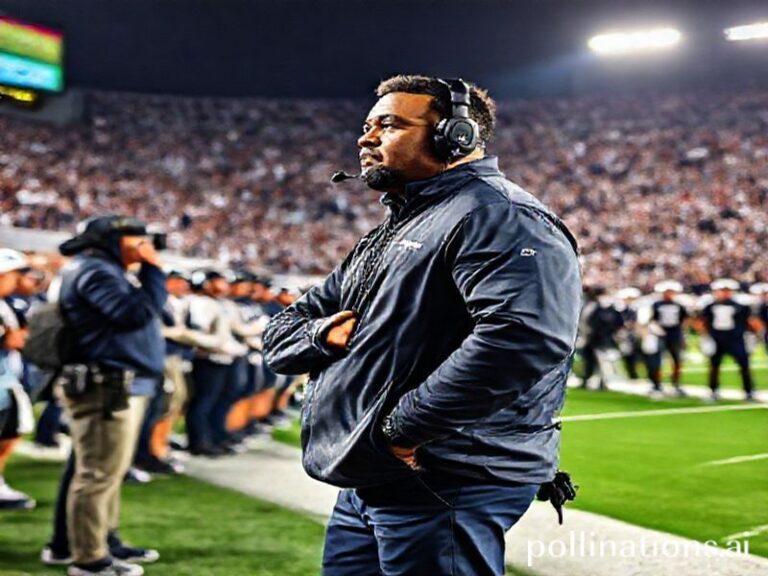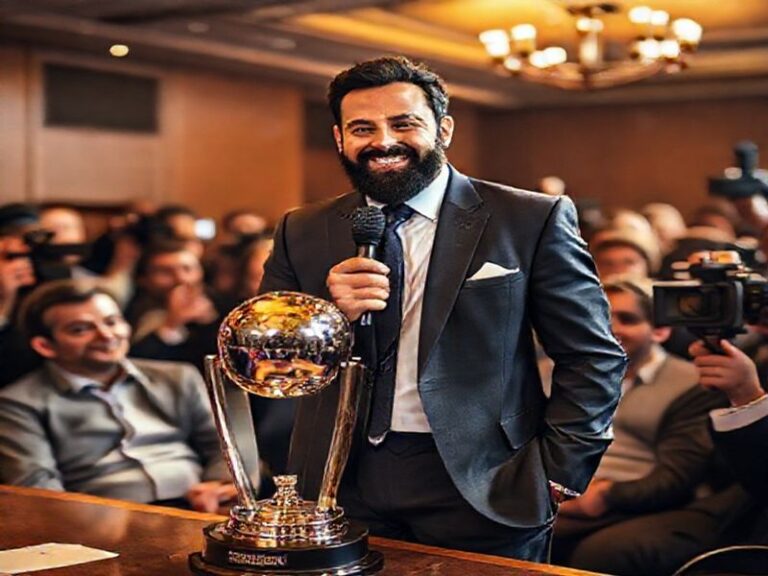Joe Flacco’s Global Encore: How an Aging QB Became the World’s Most Unlikely Export
In the grand, slow-motion car crash we politely call “civilization,” few things travel farther, faster, and with less apparent logic than an aging American quarterback looking for one last spin of the roulette wheel. So when Joseph Vincent Flacco—age 38, Super Bowl MVP from the era when Facebook was still considered cool—was air-freighted from his New Jersey couch to the Cleveland Browns last November, the ripple effects were felt from Lagos sports bars to Seoul esports cafés. To the untrained eye it was a simple injury-replacement signing; to the rest of the planet it was a parable about late capitalism, geopolitical soft power, and the human refusal to accept irrelevance.
Let’s begin in Frankfurt, where Bundesliga ultras paused their choreographed pyro displays to watch RedZone on split screens. Flacco’s fourth-quarter heave to Amari Cooper against the Colts was celebrated with the same fervor normally reserved for a Bayern comeback at the Allianz. Why? Because the NFL’s International Series has spent two decades colonizing Sunday afternoons the way the British once planted flags in malaria zones. Flacco—balding, dad-bodded, flinging passes like a man trying to launch a stubborn lawnmower—became an unlikely symbol of American durability. If a guy whose own Wikipedia page lists “Elite Dragon” as a nickname can still cash seven-figure game checks, surely there’s hope for the rest of us wage slaves.
Meanwhile, in Shanghai, the state-run Global Times ran a think piece comparing Flacco’s resurrection to China’s “lying-flat” youth suddenly deciding to rejoin the workforce. The analogy is tortured, naturally—Flacco never really stopped working; he was merely benched—but authoritarian propaganda isn’t paid for subtlety. The message: decline is optional if you have a howitzer for a right arm and a league desperate for quarterback competence.
Down in Buenos Aires, where inflation makes every peso feel like confetti, sports-talk radio dissected Flacco’s $4.05 million prorated salary in terms of alfajores per snap. The math is dizzying: one kneel-down equals 3,600 dulce-de-leche cookies. Argentine listeners called in, half in awe, half in existential despair, wondering how many World Cup winner’s bonuses Lionel Messi would need to match a backup QB’s autumn hobby income. The answer, like most economic truths south of the equator, is depressing enough to require Fernet.
Of course, the darker joke is on Cleveland itself—a city that once represented American industrial might and now, thanks to globalization’s cruel arbitrage, manufactures only heartbreak and medical-grade sadness. Flacco’s improbable four-game winning streak propelled the Browns into the playoffs, prompting the local tourism board to tweet a photoshopped image of the “Mistake on the Lake” rebranded as “Flacc-Holm.” The tweet was later deleted for copyright infringement by Sweden.
Europeans, ever eager to lecture Americans on sustainability, noted that Flacco’s carbon footprint for the season consisted of exactly one commercial jet flight and a handful of Uber Blacks. Greta Thunberg did not comment, but her silence carried the weight of a thousand passive-aggressive sailboats.
And what of the man himself? He celebrated the AFC Wild Card berth the way you or I might acknowledge a jury summons: grim nod, slight shrug, tacit acceptance that tomorrow will require pants. Asked if he felt “elite” again, Flacco replied, “I mean, I’m just trying not to throw picks.” Somewhere in Moscow, a political prisoner recognized the tone—it’s the universal sound of lowered expectations masquerading as humility.
In the end, Joe Flacco’s late-career cameo is less about football than about our species’ spectacular talent for denial. We watch a man defy actuarial tables and pretend it’s a meritocracy; we export his highlight reels and call it cultural diplomacy; we crunch his salary into pastries and still go to bed hungry. The world spins, the ball spirals, the checks clear. And somewhere in a dimly lit pub in Galway, an insomniac raises a pint to the Elite Dragon, because if mediocrity can be rewarded so handsomely, perhaps tomorrow we too will be called off the bench.
Until then, we wait—like Cleveland, like humanity—praying the next throw doesn’t sail into triple coverage.







